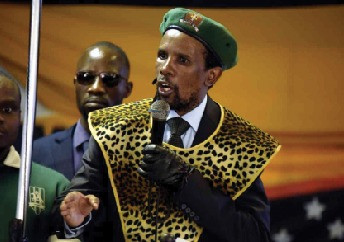
ZIMBABWE on Saturday joined the rest of the world in launching the 16 Days of Activism against Gender-based Violence (GBV), with many organisations highlighting gross violations against women and girls.
It is sad that we still live in a society where, according to the Zimbabwe Human Rights (ZimRights), factors such as patriarchy, societal and religious beliefs, politics, a culture of impunity that protects and shields perpetrators continue to fuel violence against women and girls.
The International Day for the Elimination of Violence against Women, which marks the beginning of the 16 Days of Activism against GBV campaign, will be running under the theme Unite! Invest to Prevent Violence against Women and Girls.
Zimbabwe yesterday launched the campaign in Harare, with United Nations resident and humanitarian co-ordinator Edward Kallon revealing that in Zimbabwe, 39,4% of women aged 15 to 49 experience physical violence at least once in their lifetime, while 11,6% experience sexual violence.
He also noted that one in three women between the ages of 20 and 49 are married before they turn 18.
Globally, the United Nations (UN) Office on Drugs and Crime and UN Women have reported that over five women or girls are killed every hour by a family member.
According to the UN, the COVID-19 pandemic, conflicts, and climate change have worsened violence against women and girls while intensifying existing challenges and introducing new threats.
The fight against GBV should be daily and not wait for the last week of November to amplify calls to end the scourge.
- Young entrepreneur dreams big
- Chibuku NeShamwari holds onto ethos of culture
- LSU students win innovation prize
- Mhofela finally drops album
Keep Reading
It is, indeed, disheartening that violence against women and girls remains a widespread human rights violation despite the existence of laws to combat such violence, enforcement challenges and discriminatory social norms continue to persist.
In Zimbabwe, authorities continue paying lip service to the fight against the scourge of gender-based violence.
There is a need for not only the authorities to fight violence against women and girls but also to change the attitude of men in society.
The fight against GBV should involve everyone in society including community leaders who include the men who have influence on their sons.
The UN also states that some countries estimate that gender-based violence incurs an economic impact of about 3,7% of GDP, yet investment in addressing this issue remains as low as 0,2% of overall aid in 2022. Such a significant cost cannot be ignored.
Gender gaps persist, and women’s empowerment levels remain low, hence we reiterate the call by the UN that urgent financial support is necessary to tackle these issues.
Calls to reform laws and policies, ensuring survivors have access to essential services, implementing evidence-based preventive interventions, and holding perpetrators accountable are essential if this war is to be won.
The fight against GBV has been ongoing for years and it is high time we all combined efforts to end the scourge so that women and girls are afforded opportunities that help them to grow.
The laws are there but they need implementation to end GBV. Women and girls are not punching bags, but equal partners in relationships and marriages.






